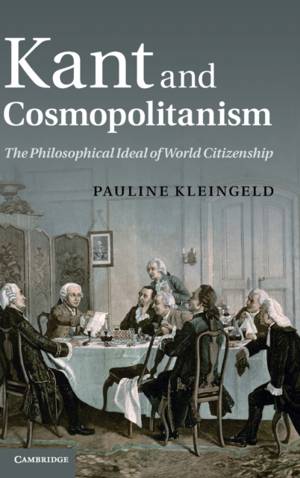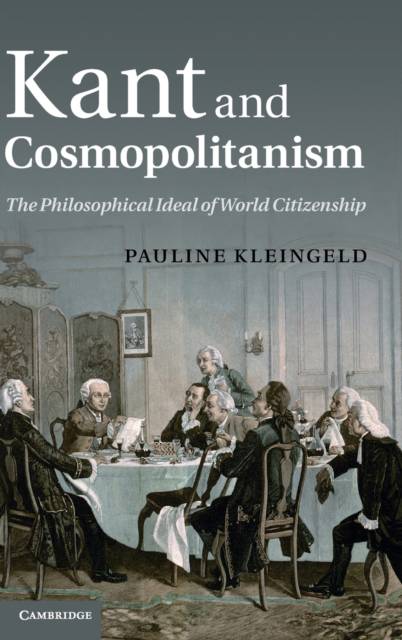
- Afhalen na 1 uur in een winkel met voorraad
- Gratis thuislevering in België vanaf € 30
- Ruim aanbod met 7 miljoen producten
- Afhalen na 1 uur in een winkel met voorraad
- Gratis thuislevering in België vanaf € 30
- Ruim aanbod met 7 miljoen producten
Zoeken
Kant and Cosmopolitanism
The Philosophical Ideal of World Citizenship
Pauline Kleingeld
Hardcover | Engels
€ 172,95
+ 345 punten
Uitvoering
Omschrijving
This is the first comprehensive account of Kant's cosmopolitanism, highlighting its moral, political, legal, economic, cultural and psychological aspects. Contrasting Kant's views with those of his German contemporaries and relating them to current debates, Pauline Kleingeld sheds new light on texts that have been hitherto neglected or underestimated. In clear and carefully argued discussions, she shows that Kant's philosophical cosmopolitanism underwent a radical transformation in the mid 1790s and that the resulting theory is philosophically stronger than is usually thought. Using the work of figures such as Fichte, Cloots, Forster, Hegewisch, Wieland and Novalis, Kleingeld analyses Kant's arguments regarding the relationship between cosmopolitanism and patriotism, the importance of states, the ideal of an international federation, cultural pluralism, race, global economic justice and the psychological feasibility of the cosmopolitan ideal. In doing so, she reveals a broad spectrum of positions in cosmopolitan theory that are relevant to current discussions of cosmopolitanism.
Specificaties
Betrokkenen
- Auteur(s):
- Uitgeverij:
Inhoud
- Aantal bladzijden:
- 232
- Taal:
- Engels
Eigenschappen
- Productcode (EAN):
- 9780521764186
- Verschijningsdatum:
- 26/12/2011
- Uitvoering:
- Hardcover
- Formaat:
- Ongenaaid / garenloos gebonden
- Afmetingen:
- 150 mm x 229 mm
- Gewicht:
- 498 g

Alleen bij Standaard Boekhandel
+ 345 punten op je klantenkaart van Standaard Boekhandel
Beoordelingen
We publiceren alleen reviews die voldoen aan de voorwaarden voor reviews. Bekijk onze voorwaarden voor reviews.











